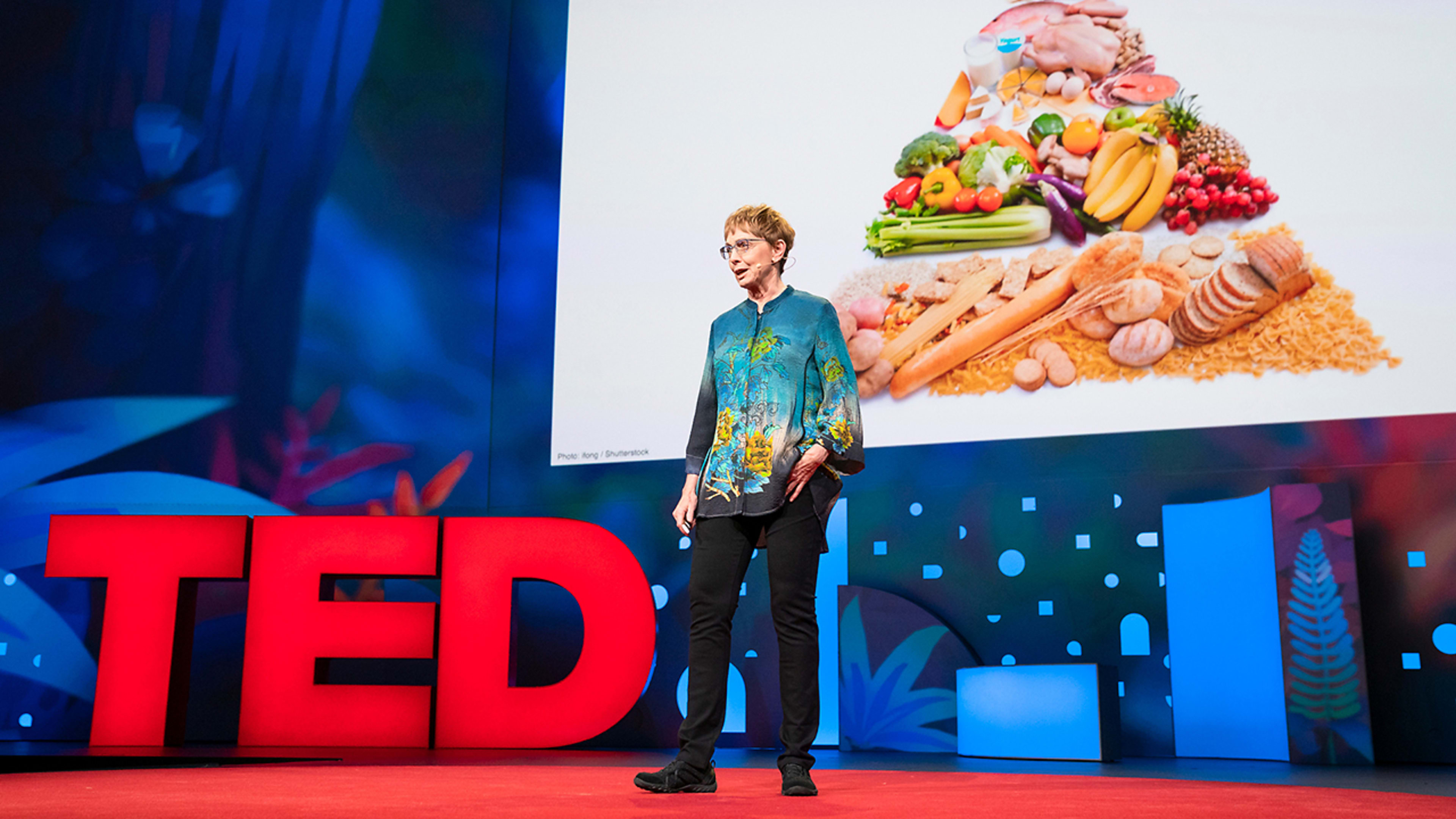We know that rising carbon dioxide levels in the atmosphere are raising global temperatures and creating unstable and extreme weather patterns that will continue to threaten communities across the globe. And perhaps few people are more familiar with this fact than Kristie Ebi, the University of Washington professor who was the lead author on the Intergovernmental Panel on Climate Change’s (IPCC) blockbuster report last fall on the need to limit global warming to below 1.5 degrees Celsius.
But on the stage at TED in Vancouver, Ebi made it clear that climate shifts are far from the only consequence of rising CO2 levels. “Our emission of greenhouse gases from burning fossil fuels is reducing the nutritional quality of our food,” she says.
Ebi directly refuted an idea that’s been floating around for a while about the effect of CO2 on food production and global hunger. Technically, plants need CO2 to survive: They bring it in, break it down, and rely on carbon to grow. Some researchers have claimed that more CO2 means that more plants will be able to grow, and higher CO2 levels will then help solve food insecurity.
That, according to Ebi, is a hugely, dangerously wrong. Not only will climate change and global warming make agricultural productivity and much more unstable, but when plants take in an excess of CO2, their chemical makeup changes in a way that that’s harmful to the humans and animals that depend on them for nutrition: higher concentrations of CO2, increases the synthesis of carbohydrates like sugars and starches, and decrease the concentrations of proteins and nutrients like zinc, iron, and B-vitamins. “This is very important for how we think about food security going forward,” Ebi says.
A lack of iron can lead to outcomes like anemia and stunted development; low levels of zinc contributes to loss of appetite and additional developmental difficulties. B vitamins are crucial for converting our food into energy, and the way our bodies function overall. “It’s not just us,” Ebi says. Animals like cows that rely on grains and plants for their diet produce meat and milk that contain fewer nutrients and vitamins, and people who eat meat take in fewer of those crucial resources.
To understand just how profound these effects will be, Ebi’s team studied fields of rice that were saturated with CO2 levels equivalent to those we might experience in 2050. They found that levels of protein in the rice declined by around 10%, iron by around 8%, zinc by 5%, and B vitamins by around 18%. “These don’t sound like major changes, but when you think about the poor in countries who eat mainly starches, this will put them from the edge to over the edge and into nutrient deficiency,” Ebi says.
Ebi also calls for more investment from governments and food companies in interventions that could support the nutritional quality of crops. Biofortification, the process of adding vitamins and minerals to seeds, has proven effective in parts of Africa where nutritional deficiency is already a significant problem, and plants can be bred to support greater nutrient diversity. And overall, these findings add more fuel to the argument that we must work to limit CO2 emissions as quickly as possible.
Recognize your brand’s excellence by applying to this year’s Brands That Matter Awards before the early-rate deadline, May 3.
